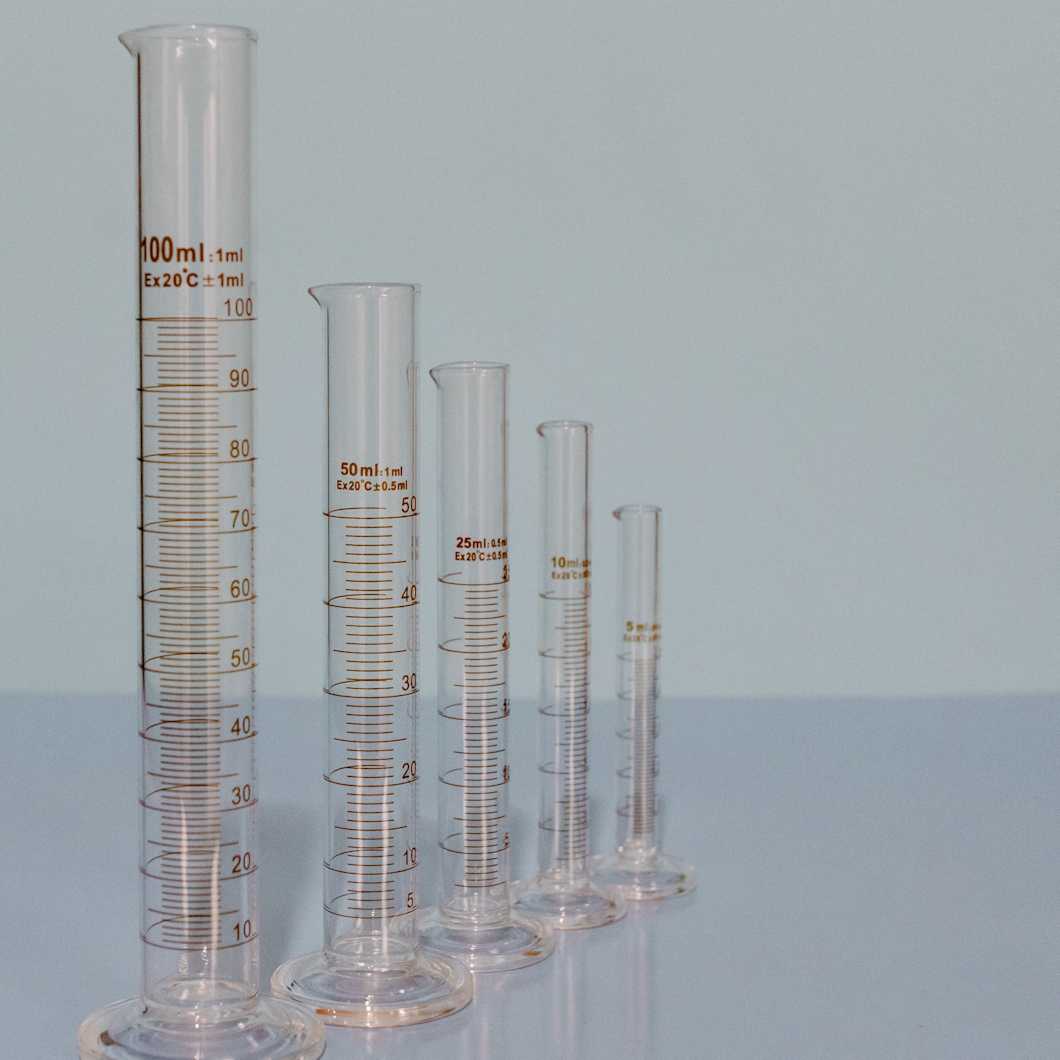Ion chromatography
Ion chromatography (IC), also known as ion exchange chromatography (IEC), is an analysis technique that gives precise concentrations of charged molecules and ions in a solution. IC can be used to detect and quantify nearly all kinds of charged molecules, such as water impurities, biomass-based sugars, large proteins, small nucleotides, and amino acids.

Some of our ion chromatography services
Substances of very high concern (SVHC) analysis
Total organic fluorine (TOF) content in paper, polymers, and textiles
Total organic fluorine (TOF) content in challenging sample materials (chemicals, oils, etc.)
Total fluorine content in plastic
Chemical characterization of medical devices according to ISO 10993-18
Total amino acid profile of food, feed, and dietary supplements
Anions in soil, sludge, sediment and water samples (ISO 10304-1, EN 16192)
Compositional analysis of biomass
Prices excluding VAT.
- Fast turnaround times
- Personal service from method experts
- Competitive prices
- Result accuracy guarantee
What is IC analysis used for?
Two types of ion chromatography can be identified depending on their ion exchange capability: anion exchange and cation exchange chromatography. In most typical commercial applications, IC is used to analyze common anions in aqueous solutions. Some of the most common analytes for IC include halides, oxides of nitrogen, and sulfate.
How does ion chromatography work?
The principle of IC analysis is to separate differently sized and charged molecules from each other as they flow through the column dissolved in a suitable eluent. The separation is based on the molecules' interaction with the resin that is packed in the column. Smaller molecules and molecules that have a low affinity with the resin move through the column faster and are detected with an electrical conductivity detector before the larger molecules and those that have a stronger affinity. IC can separate almost all charged molecules, including anions, cations, and polar molecules, and it can detect them in small quantities.
Sample requirements and preparation
IC can be used for both liquid and solid samples. However, ion chromatography requires either an aqueous sample matrix, extraction of the sample with water, or combustion of the sample (combustion-IC). With combustion-IC, many non-water soluble sample matrices can be analyzed. This includes, for example, different kinds of combustible solids, polymers, organic solvents, and fuels.
Limitations of ion chromatography
High analyte concentrations, and especially high concentrations of ions, can complicate IC analysis, as they may necessitate excessive dilution, which in turn leads to lower sensitivity. Similarly, samples that leave high ash residue from combustion increase uncertainty in the analysis.
Need IC analyses?
Measurlabs offers laboratory testing with IC and CIC methods. From tens to hundreds of samples, we ensure your analyses are handled on time, with the highest quality. More than 700 companies choose Measurlabs for accurate results and dependable service - contact us through the form below to get a quote and experience our service level yourself.
Suitable sample matrices
- Liquid and solid samples
- Aqueous samples
Ideal uses of ion chromatography
- Anion concentration monitoring, including the detection of nitrates, nitrite, and fluoride in drinking water and other aqueous solutions
- Measuring active pharmaceutical compounds and studying drug degradation products in the pharmaceutical industry
- Detection of acids and sugars in the food industry
- Analysis of biomass-based sugars
- Measuring sulfite concentrations in wine
Ask for an offer
Fill in the form, and we'll reply in one business day.
Have questions or need help? Email us at info@measurlabs.com or call our sales team.
Frequently asked questions
IC is used to separate and detect ionic compounds in a mixture. It gives precise concentrations of the charged particles in the sample.
Ion chromatography is an effective tool for detecting different charged or polar molecules, including sugars, proteins, amino acids, sulfate, halides, and nitrogen oxides.
Only analytes that can be charged are detectable with IC.
Samples can be in the form of liquids or solids, but solid samples need pretreatment through extraction or combustion.
Measurlabs offers a variety of laboratory analyses for product developers and quality managers. We perform some of the analyses in our own lab, but mostly we outsource them to carefully selected partner laboratories. This way we can send each sample to the lab that is best suited for the purpose, and offer high-quality analyses with more than a thousand different methods to our clients.
When you contact us through our contact form or by email, one of our specialists will take ownership of your case and answer your query. You get an offer with all the necessary details about the analysis, and can send your samples to the indicated address. We will then take care of sending your samples to the correct laboratories and write a clear report on the results for you.
Samples are usually delivered to our laboratory via courier. Contact us for further details before sending samples.